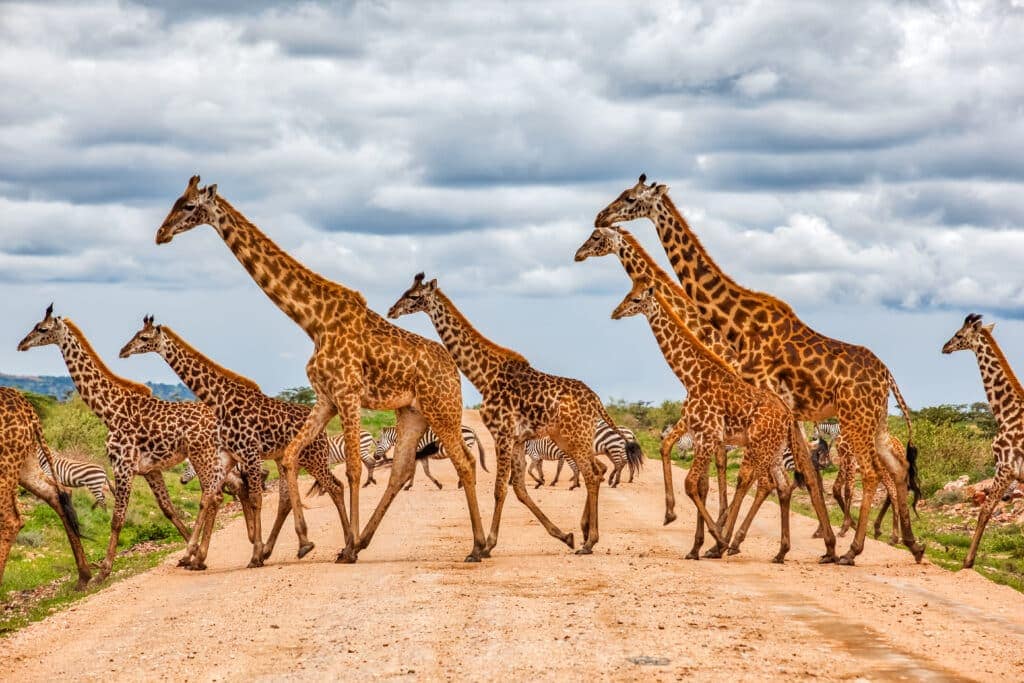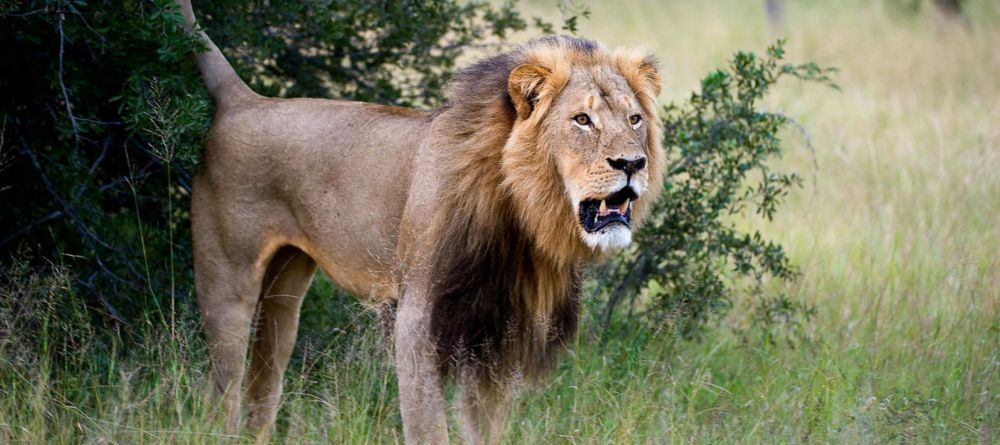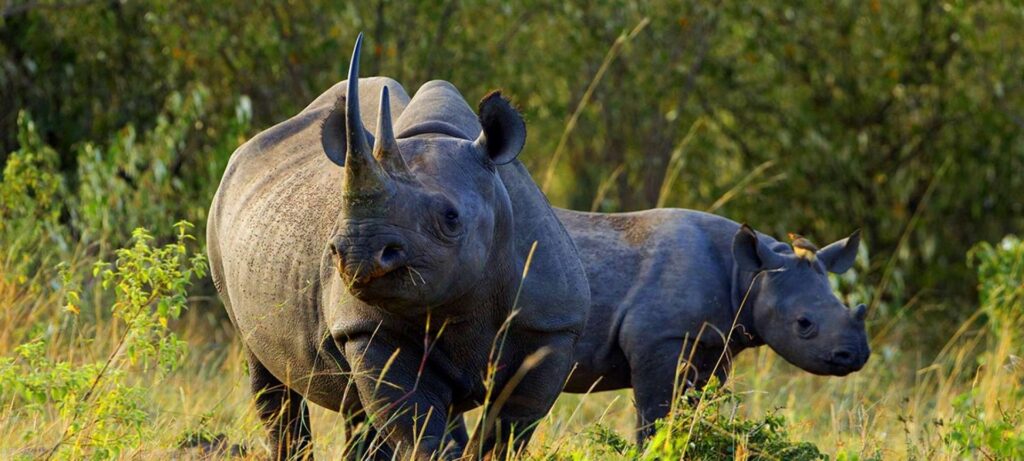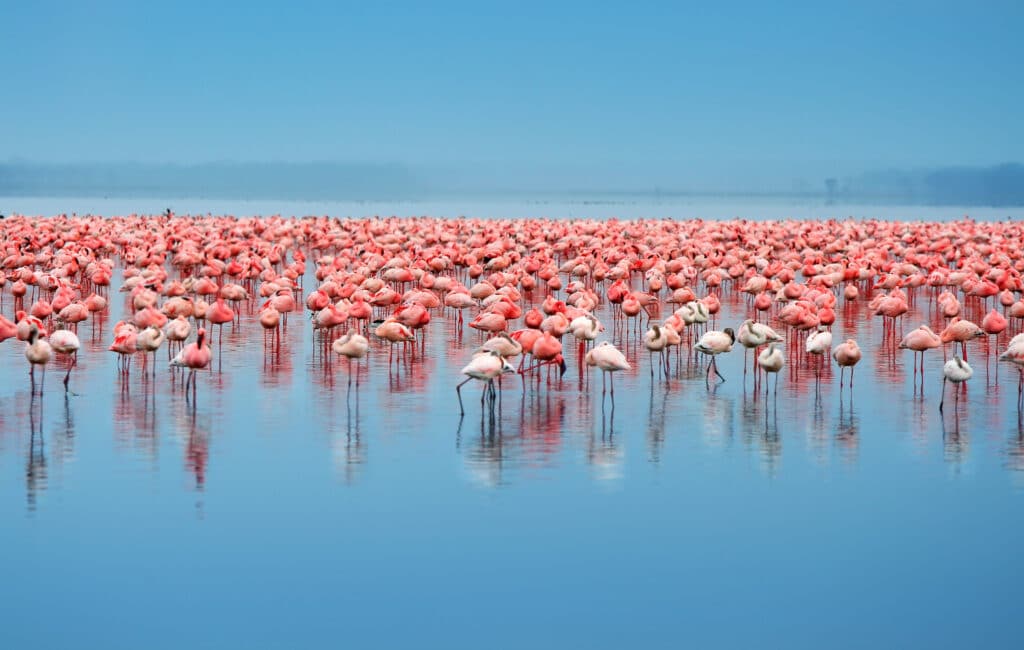Although about 8% of Kenya is designated for wildlife conservation, 65% of the country’s iconic wildlife live outside the national parks. Issues such as habitat loss, forest depletion, and human-wildlife conflict due to encroachment continue to threaten Kenya’s biodiversity and endangered species.

A number of local and international conservation initiatives are working with the government and communities at all levels to find manageable solutions to these challenges.
In this article we’ll introduce some of the most important conservation initiatives you can support in Kenya.
Nature Kenya
Nature Kenya is Africa’s oldest environmental society, established in 1909 to promote the study and conservation of nature in east Africa. A non-political and not for profit membership society, Nature Kenya strives to advance knowledge of Kenya’s biodiversity and promote conservation of key species, sites, and habitats.

They work to encourage community participation in conservation through capacity building and promotion of sustainable benefits and advocate policies favorable to biodiversity conservation. You can donate to Nature Kenya here.
Kenya Wildlife Trust
Kenya Wildlife Trust (KWT) is Kenya’s principal predator conservation trust and is dedicated to three of the country’s most important ecosystems: Greater Mara, Samburu-Laikipia, and Amboseli-Tsavo.
The organization protects vulnerable predator populations, empowers and educates local communities and stakeholders about conservation and environmental stewardship.

KWT’s vision is a Kenya where predator populations are a cornerstone of thriving ecosystems. Their mission is to implement programs and provide funds to data-driven and community supported conservation efforts that enable the long-term viability of predator populations in Kenya. You can donate to KWT here.
Zoological Society of London
The Zoological Society of London (ZSL) partners with Kenyans to support the recovery of Kenya’s wildlife. They work with vulnerable communities to help them develop sustainable, conservation-friendly livelihoods and reduce human-wildlife conflict.
ZSL works to manage protected areas and wildlife corridors, help conservations develop more sustainable ways of working, empower local communities to safeguard wildlife and manage natural resources sustainably.

ZSL also shares scientific information to shape conservation action and innovation, and supports programmes about wildlife health to educate and train wildlife health professionals. You can donate to ZSL here.
The Nature Conservancy
The Nature Conservancy (TNC) is a global environmental nonprofit working to create a world where people and nature can thrive. Founded in the U.S. through grassroots action in 1951, TNC has grown to become one of the most effective and wide-reaching environmental organizations in the world.

Thanks to more than a million members and the dedicated efforts of their diverse staff and over 400 scientists, TNC impacts conservation efforts in 79 countries.
TNC is taking on some of Kenya’s most pressing challenges by strengthening governance, diversifying economies, and improving natural resource management. You can donate to TNC here.
Sheldrick Wildlife Trust
The Sheldrick Wildlife Trust embraces all measures that complement the conservation, preservation and protection of Kenya’s wildlife and habitats.

Working across Kenya, their projects include anti-poaching, safeguarding the natural environment, enhancing community awareness, addressing animal welfare issues, providing veterinary assistance to animals in need, rescuing and hand rearing animals that can enjoy a quality of life in wild terms when grown.
Their website features a shop that contributes to conservation efforts or you can donate directly here.
Big Life Foundation
Big Life protects vulnerable predators in the ecosystem in collaboration with partners and local communities. The core component of Big Life’s predator protection program is livestock compensation, which reduces the motivation for retaliatory killing in response to livestock depredation.
This Predator Compensation Fund (PCF) pays Maasai livestock owners a portion of the value of their livestock lost to predators, on the condition that no predators are killed in retaliation.

Big Life currently manages the PCF on Mbirikani Group Ranch and Eselengei Group Ranch, and is actively expanding to the Kimana Conservancies. The lion population in Big Life’s area of operation is one of the few lion populations in all of Africa that is growing, not declining. You can shop on their website to support the cause or make a donation here.
Tsavo Trust
Tsavo Trust is an action-orientated, field-based, Kenyan not-for-profit conservation organization that works to give the wildlife and people of Tsavo the right to a future.
Headquartered in the Tsavo Conservation Area (TCA) they are a team of professionals from the world of conservation and wildlife management, with a long history of living and working in the Tsavo region, and an understanding of its importance to Kenya.

The TCA holds significant wildlife populations, both inside and outside the national parks, including extremely large numbers of high value species – elephant and black rhino.
Tsavo Trust is working towards protecting wildlife and its habitat as well as promoting community engagement in conservation challenges. You can donate to their efforts here.
African Wildlife Foundation
The African Wildlife Foundation (AWF) is an Africa-based global conservation organization protecting wildlife and their habitats as essential parts of a modern and prosperous Africa. They articulate a unique vision of African-led conservation, focusing on solutions that create opportunities for people.
In Kenya, they give a voice to giraffe conservation, seeking to draw much-needed attention to a species that is under dramatic threat of extinction.

With support from the European Union, AWF is supporting communities to engage in wildlife conservation and combat illegal wildlife activities in the Tsavo ecosystem.
AWF is also strengthening management of the LUMO Conservancy. By setting the precedent for upcoming conservancies in the Tsavo landscape, a multitude of social, ecological, and economic benefits will prevail. You can donate to their cause here.
The Wildlife Foundation
The Wildlife Foundation (TWF) is dedicated to conserving Kenya’s wildlife dispersal areas.
Conservation programmes include community conservancies (which incentivize local communities to share land with wildlife), conflict mitigation (to prevent and manage human-wildlife conflict), and community rangers, who are trained at the Kenya Wildlife Service Law Enforcement Academy.

TWF also hosts groups at the TWF Center on the Naretunoi Community Conservancy to create awareness about the Athi Kapiti Ecosystem, its ecology, challenges facing it, and what can be done to protect it.
The experience includes cultural exchange with the local Maasai community, installation of predator deterrent lights to prevent human-wildlife conflict, and patrols, biodiversity monitoring and community engagement. You can donate to TWF’s work here.
Kenya Wildlife Conservancies Association
Kenya Wildlife Conservancies Association (KWCA) is a landowner-led national membership organization representing community and private conservancies in Kenya. KWCA works with conservancy landowners and regional associations to create an enabling environment for conservancies to deliver environmental and livelihood benefits.
Their mission is to be the forum where landowners have a unified voice, share experiences, and actively participate in protecting and benefitting from wildlife.

KWCA works towards a future where wildlife and communities benefit from a network of functional conservancies that complement state-protected areas.
The association is setting out to change how Kenya’s wildlife and wild places are managed as well as strengthen people’s rights to manage and benefit from nature. You can donate to KWCA here.
Author: Adelle Bell
Published:
Last Update:
Part of the Kenya Safari Collection